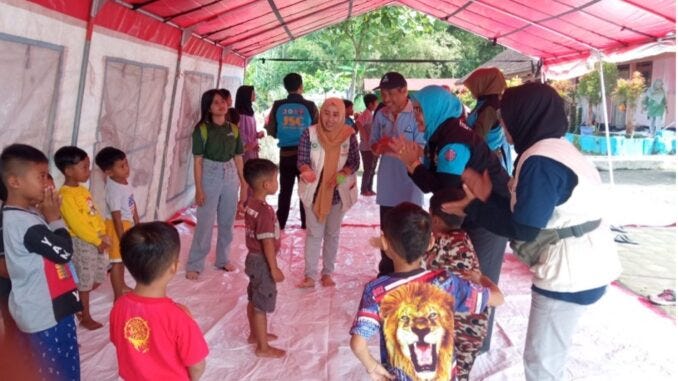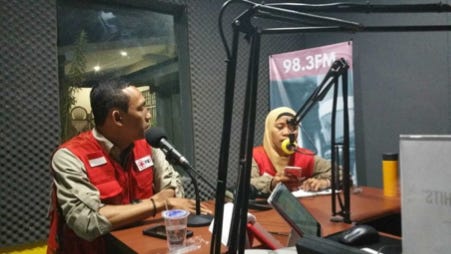Leave No One Behind: Lessons from Indonesia for More Inclusive, Effective, and Accountable Disaster Response and Recovery
By Dr. Avianto Amri, Chairperson of the Indonesian Society for Disaster Management (MPBI)
When an earthquake strikes or a flood displaces entire communities, the visible damage is overwhelming — broken homes, shattered infrastructure, lost lives. Yet hidden beneath these scenes are deeper, long-term impacts on the people most often overlooked.
As Indonesia has learned through decades of experience responding to disasters, recovery efforts must go beyond restoring what was lost — they must ensure that no one is left behind.
Reflecting on Indonesia’s journey offers valuable lessons for disaster-affected countries like Myanmar, and for the broader humanitarian community working toward responses that are not just faster, but more inclusive, more effective, and more accountable.
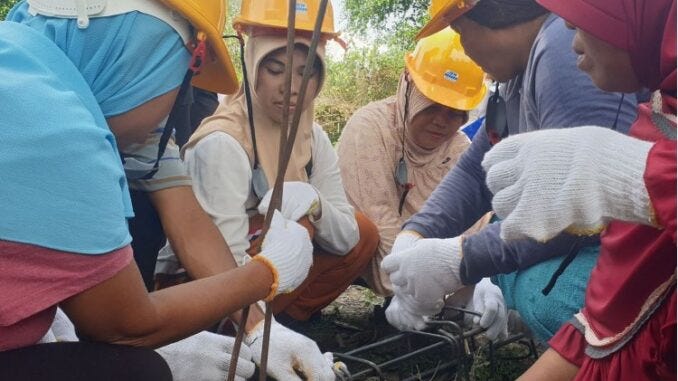
One Size Does Not Fit All
In the aftermath of a major disaster, the instinct is often to provide rapid, standardized assistance. However, Indonesia’s experiences — from Aceh to Palu to Cianjur — demonstrate that one-size-fits-all solutions rarely meet the complex realities of affected families.
Recovery is deeply personal. Each family’s needs, resources, and pathways to recovery are different. Standardized shelter designs, for instance, often fail to accommodate cultural, economic, and gender-specific realities. Tailored support — flexible enough to adapt to diverse needs — must be at the core of recovery strategies.
Read more: One Size Doesn't Fit All: Lessons on Shelter Response
Restoring Education: A Life-Sustaining Priority
In the aftermath of a disaster, education often gets overlooked as governments and responders rush to meet urgent needs for shelter, food, and health. However, Indonesia’s experience shows that restoring education is just as life-sustaining as providing food or shelter.
Setting up temporary learning spaces — whether in tents, public buildings, or even open areas — not only keeps children learning, but also provides a sense of normalcy, protection, and hope. Education plays a critical role in psychosocial recovery, supports community cohesion, and allows caregivers to focus on rebuilding their homes and livelihoods without worrying about their children’s safety.
Prioritising education early accelerates community recovery and ensures that the long-term impacts of disaster do not permanently disrupt children’s futures.
Read more: Education in Emergencies: Lessons from Indonesia
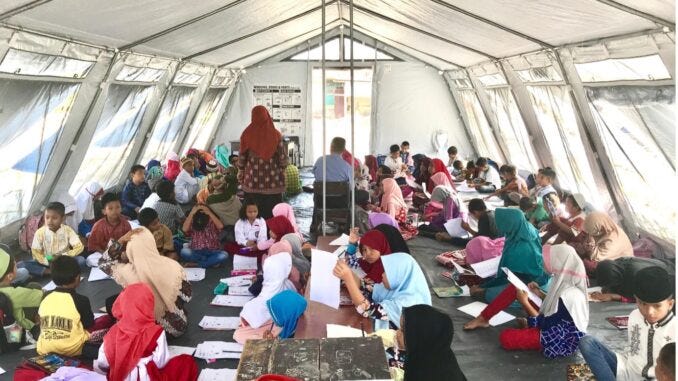
Mental Health and Psychosocial Support (MHPSS): Healing Invisible Wounds
Physical reconstruction is important, but so is healing the invisible wounds that disasters leave behind.
In Indonesia, community-based MHPSS initiatives — involving teachers, religious leaders, and youth groups — have been key to helping survivors process trauma and rebuild a sense of normalcy. Importantly, MHPSS is not just for children. Adults, caregivers, and frontline responders also need ongoing support to sustain recovery and resilience.
Read more: Mental Health and Psychosocial Support in Post-Disaster Settings
Occupational Safety: Protecting Responders from Hidden Hazards like Asbestos
Disasters don’t just destroy — they also expose hidden dangers, like asbestos. In Indonesia, post-earthquake responses revealed that many damaged buildings contained asbestos-based materials, posing serious long-term health risks to both community members and humanitarian responders.
Often, volunteers and aid workers clear debris without knowing the dangers or using appropriate protective equipment. Indonesia’s experience shows that even in resource-constrained settings, simple and practical measures — such as identifying asbestos-risk areas, using basic PPE, and safely managing debris — can significantly reduce risks.
Protecting the people who step forward to help must be seen as an integral part of any humanitarian response.
Read more: Hidden Risks: Lessons on Asbestos Handling in Disaster Zones
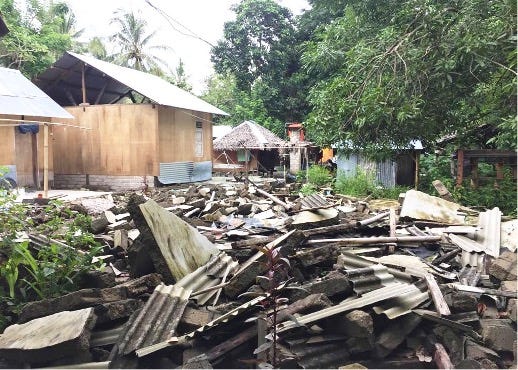
Gender Equality, Disability, and Social Inclusion (GEDSI): Making Inclusion Real
Effective disaster recovery requires more than just disaggregating data by gender, age, or disability. It demands that we analyse and use that information to design interventions that work for those most at risk.
In Indonesia, earthquakes and other disasters have created new groups of people with disabilities, emphasising the need for continuous assessment and flexible planning. Moreover, empowering women, girls, persons with disabilities, and the elderly not only protects them — it accelerates the recovery process.
Read more: Inclusion as Acceleration: GEDSI in Disaster Recovery
PSEAH: Protection Must Begin Within the Humanitarian Community
Another critical lesson from Indonesia is that humanitarian actors themselves must model protection. Sexual exploitation, abuse, and harassment (SEAH) risks increase in chaotic emergency settings — not just for survivors within communities, but for aid workers, especially those who are young, new, or on temporary contracts.
Building a culture of prevention — through awareness, simple reporting mechanisms, and survivor-centred services — must be integral to all humanitarian programming.
Read more: Preventing Abuse in Disaster Zones: Making PSEAH Real
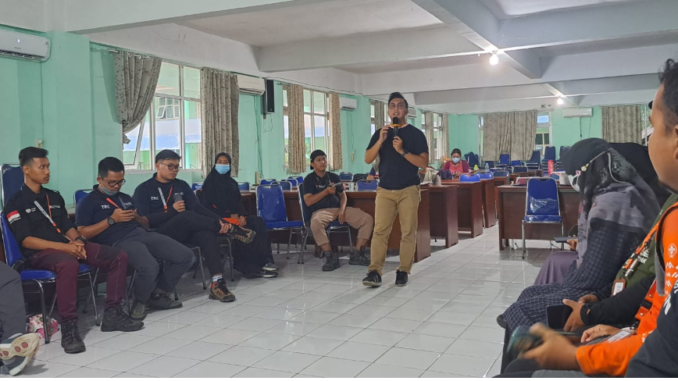
The Power of Listening: Feedback Mechanisms Save Lives
In every disaster response Indonesia has navigated, real-time feedback from affected communities has been vital. No plan survives first contact with reality — and the faster agencies can adapt to community feedback, the more lives and livelihoods they can protect.
Establishing multiple, accessible channels for feedback isn’t just good practice — it is a humanitarian obligation.
Read more: Listening to Adapt: Feedback Mechanisms in Disaster Response
Moving Forward
As Myanmar and other countries in the region face complex, overlapping disasters, Indonesia’s experiences offer an important reminder: Inclusive recovery is not just about doing more — it's about doing better.
We invite ADRRN members and the wider humanitarian community to share their reflections and build on these lessons. By learning from each other, we can move closer to a world where no one is left behind after disaster strikes.
📩 To share your thoughts or experiences, please contact the MPBI Secretariat at mpbi.sekretariat@gmail.com or visit www.mpbi.info.




